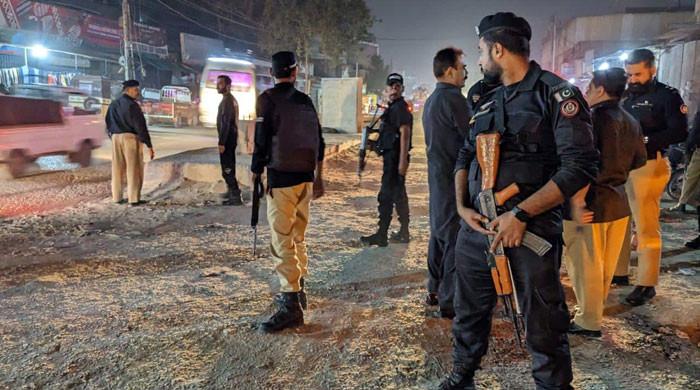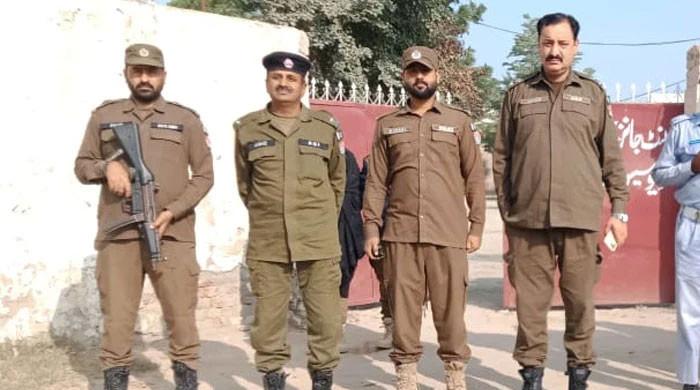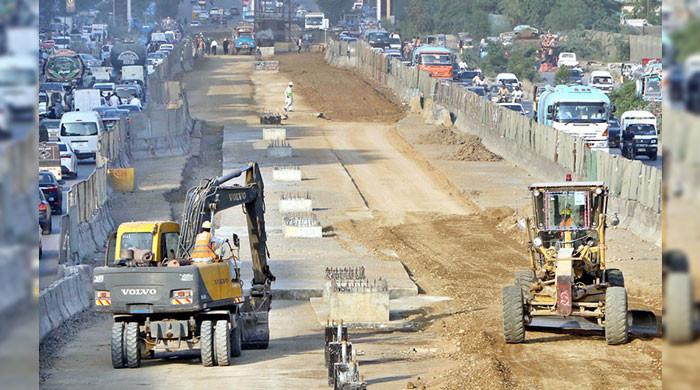KARACHI: To modernise the Sindh Police Department with current equipments and gadgets, provincial police chief Ghulam Nabi Memon has started equipping the department with tools to help in investigations, and sanctioning officers who have passed the investigation test.
Since being posted as the IG, Memon’s main focus has been on the Investigation Branch, a key department, since good investigation ensures that justice prevails.
Memon chaired several meetings, and investigated the officers serving the branch for several years, with cases assigned to them still pending and lacking significant progress.
A list of officers with patchy record was compiled, then they were transferred to the Police Headquarters, Garden, and replaced with officers of good reputation and investigation skills.
Courses were also conducted for investigation officers (IOs) to ensure they became well-versed in modern investigation techniques. The reshuffle and courses resulted in convictions in several cases pending for two years. Memon also formed committees to select officers with good record, and expel those with dubious record.
In a recent meeting chaired by Chief Secretary Syed Asif Hyder Shah, Memon proposed recruiting 2,000 ASIs for the Investigation Branch. The IG explained that the police force had historically focused heavily on recruiting constables, who now make up approximately 92 per cent of the total force.
He said that this imbalance had hindered the growth of the Investigation Branch. The induction of ASIs will play a vital role in improving investigation standards, ensuring thorough evidence collection and enhancing conviction rates, he added.
He also said that effective investigation is the backbone of the criminal justice system, and these newly created posts would empower police to gather facts, analyse evidence and build stronger cases to ensure offenders are brought to justice.
Besides creating new posts, the home department has also sought the approval for the reappropriation of 1,038 posts from non-investigation to investigation units within the Karachi Range. This reallocation is aimed at utilising resources better without imposing any additional financial burden.
Officials said that some 12,000 cases are pending investigation. In 25 per cent of the cases, 4,000 officers were needed for investigation, so officers were recruited for the Investigation Branch, but they will not to transferred to other units, they added.
Ten-day training sessions have also been started for IOs, during which they are tested by a judge from the Judicial Academy and members of the Prosecutor General Office. Only 20 per cent of the officials passed a recent test, and those who failed were removed from the Investigation Branch.
After Memon forwarded a proposal to the provincial government to increase the investigation cost, Chief Minister Syed Murad Ali approved it, and also made the assurance of giving the Investigation Branch officials raises.
According to officials, the investigation cost for murder cases is Rs100,000, for rape cases Rs100,000, for terrorism cases Rs500,000 and for other crimes, including narcotics, Rs25,000.
Special training sessions have also been started to explain the investigation unit’s importance, and its aims and objectives. Besides the police officers involved as master trainers in the training session, Dr Susan Gurney, an associate professor at the University of Cambridge, took part in the online training session to benefit the participants with her experiences and analyses.
The participants were informed about the use of forensic, ballistic and fibre technologies, and the importance of fingerprinting in all matters to raise the success rate of their cases.
Dr Susan told them about new research conducted internationally on crimes against women and their prevention, and about maintaining high standards of evidence, the standards of chain of custody and investigative techniques to deal with challenges.
Investigation DIG Zulfiqar Ali Mehar said on the occasion that the quality of investigation is being further improved across the province through various training programmes, under which IOs are being trained on all aspects of investigation and the necessary techniques.
Crime & Investigation DIG Amir Farooqui told the participants about the report on crime statistics and the increase in the conviction rate on the basis of effective investigation of cases and solid challans.
IG Memon also signed an MoU with social welfare organisation Law Is My Protector, under which international master trainers would be hired for conducting trainings in the field of investigation.
He also announced a new policy for the Investigation Branch, ordering that inspectors serve at the branch for two years before being transferred. His policy aims to put an end to random transfers of officers and officials, particularly those at the inspector rank.
The letter from the IG’s office was sent to the Addl IG of the Karachi Range, as well as to the DIGs of the Hyderabad, Mirpurkhas, Shaheed Benazirabad, Sukkur and Larkana ranges.
The letter states that the matter had been moved to the home department for the framing of amendments to the recruitment and promotion rules for the posts of ASI (BPS-11), sub-inspector (BPS-14), inspector (BPS-16) and DSP (BPS-17).
The eligibility criteria was set as the officer concerned in the relevant rank should conduct investigations into a minimum of 25 cases until their next promotion.
The requirement for mandatory posting in the Investigation Branch for newly promoted inspectors was lifted. The Karachi Addl IG and zonal DIGs are now authorised to assign inspectors to either the Investigation Branch or the Operations Branch, provided they complete the investigation of 25 cases before being promoted to DSP.
Earlier, IG Memon had also chaired a meeting focusing on the necessary reforms to be made in the Criminal Record Management System (CRMS). The CIA DIG briefed the meeting on the registration and utilisation of criminals’ data in the Criminal Record Office (CRO) under the CRMS. The Sindh police have documented criminal records from 1960 to 2014.
The meeting was told that criminal records have been registered in the CRO since 2014, and the CRMS currently contains data on over 779,000 individuals. This data is also shared with various government and international organisations for purposes such as employment verification.
The meeting noted that the CRO system has also been installed at the Malir, Central and women’s jails. Memon emphasised the need to further upgrade this system by linking it to Nadra records.
He said that modern policing relies heavily on data and technology. He ordered forming a committee comprising the Crime & Investigation, CIA, Investigation and IT DIGs to develop comprehensive proposals for upgrading the CRO system and linking it to Nadra records.
Additionally, he directed the Investigation DIG to identify the staff who have not adhered to the SOP in the registration of criminal data. Officers from all investigation departments must ensure that the CRO certificate is attached before submitting a challan in court, he said, adding that the CRO must be connected to the Police Station Record Management System under the CRMS.
#Investigation #branch #upgraded #ensure #justice #prevails











